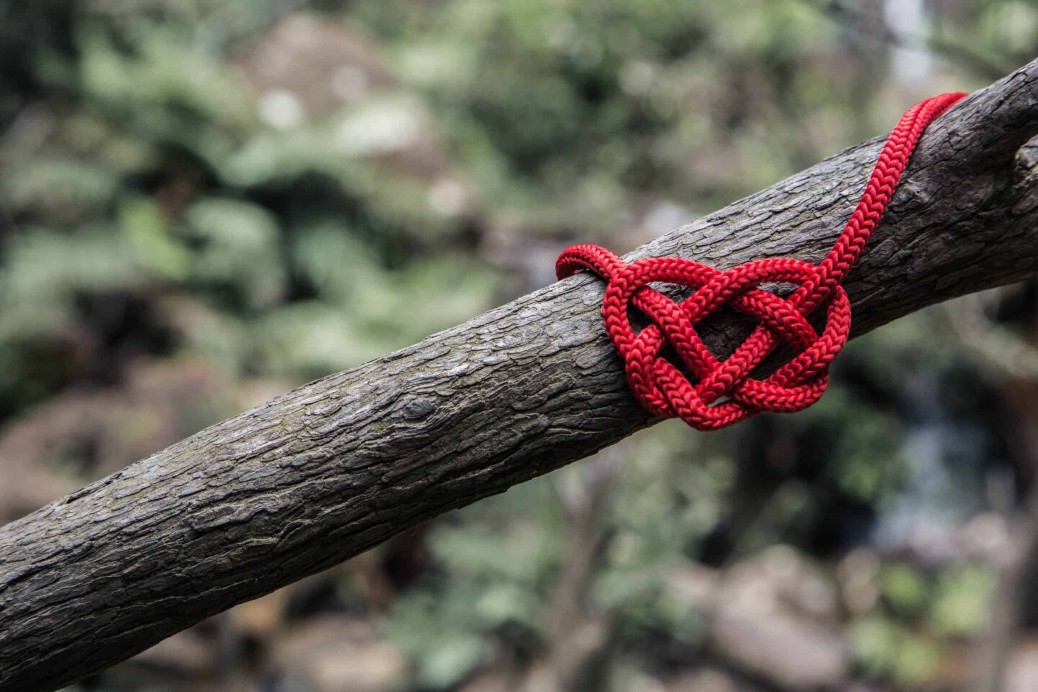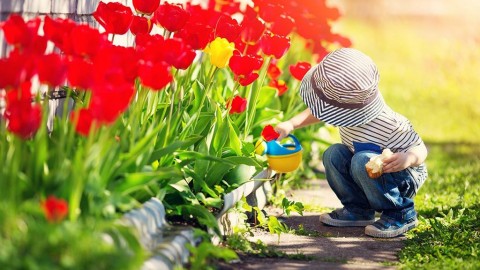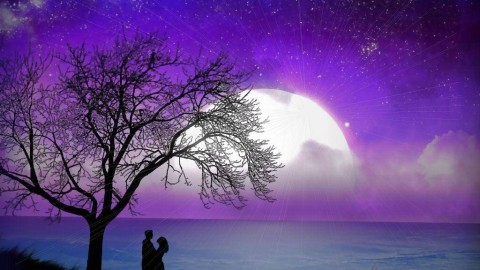If you try to understand me, this is my whole effort: to make you whole and total so all the contradictions are absorbed and a harmony arises. I don’t want you to become monotonous. A life of ordinary indulgence is monotonous. A life of ordinary yoga is also monotonous, boring. A life which comprehends all contradictions in it, which has many notes in it but, still, all notes fall in a harmony; that life is a rich life. And to become that rich life, to me, is yoga.
And these five vows are not to cut you from life, they are to join you. That emphasis has to be remembered because many people have used these five vows to cut themselves from life. They are not meant for that – they are meant for just the opposite.
For example, the first is ahimsa, nonviolence. People have used it to cut themselves from life because they think if you are in life there will be some violence or other. There are Jains in India; they believe in nonviolence. That is their whole religion. You see a Jain monk: he escapes from everything because everywhere he finds there is a possibility of violence. Jains stopped cultivation – gardening, farming – because if you are doing farming, gardening, cultivating, then there will be violence because you will have to cut many plants and every plant has a life. So Jains completely dropped agriculture.
They could not go to war, because there will be violence. All their teachers were warriors; they came from the kshatriya clan. Mahavir and all other tirthankaras, they all came from the kshatriyas, but their followers are all merchants, businessmen. What has happened? To war they cannot go; the army they cannot join. So they cannot be warriors because there is violence; they cannot be agriculturists because there is violence. And nobody wants to be a sudra, nobody wants to be an “untouchable” and clean other people’s latrines and wash other people’s houses – nobody wants – so that they cannot be sudra. Brahmins, they cannot become because their whole religion was a revolt against brahmins. So the only possibility that remained was that they become only merchants.
There are Jain monks who are even afraid to breathe because in breathing many lives are killed. Very small lifes are moving in the air. It is full of germs, very minute germs; you cannot see them with the naked eye. When you breathe in, they die; when you breathe out, your hot air coming out kills them. So they have even become afraid of breathing. They cannot walk in the night because maybe some insects are in the dark… then there is violence. They cannot move in the rainy season because in the rainy season many insects and many flies, many ants, are born, and everywhere life is alive. If you move on wet ground there is a possibility…. It is said that a Jain monk should not even turn his side in the night while asleep, because if you turn your side too many times you may kill a few insects; you should remain on one side.
This is moving to the extreme. This is moving to absurdity. So remember, people have used nonviolence against life. And nonviolence means such a deep love of life that you cannot kill: you love life so much that you will not like to hurt anybody. It is deep love, not rejection.
Of course, in being alive a little violence is a must, but that is not violence, because you are not doing it willfully. So remember, only that is violence which you do willfully. If I am breathing, I am not breathing willfully. Breathing is going automatically – you are not breathing; you are not the doer. You try to stop it and then you will know. Just for a single second you can stop, and it comes rushing out or rushing in. It happens you are not responsible for it. Food, you will have to eat. Whatsoever you eat will be a sort of violence. Even if you pluck fruits from the trees you are hurting the trees.
Jains started not to eat meat. Good – because that can be avoided. That which can be avoided is beautiful. Then they became afraid of eating fruits from the trees because if you take the fruit the tree is hurt. So what to do? Wait… when the fruit is ripe and falls on the ground. That too is good, nothing is wrong, but even if the fruit has fallen on the ground it contains millions of seeds – and each seed could have become a tree, and in each tree there was the possibility of millions of fruits again. So you are eating all those possibilities – you are violent.
You can stretch a principle to absurdity: and then there is only one possibility – commit suicide. But that too is violent: you are killing yourself. Not only yourself, in your bloodstream there are seven million germs; they will be killed if you commit suicide. So nowhere to go – not even suicide is possible.
This will become a very absurd life, worried, tense. And you were in search of a relaxed, calm and quiet life; and this life will become so tense and such anguish…. You can see – go, look at Jain monks’ faces. You will never find their faces blissful – impossible. If you live in such total fear that everything seems to be wrong, you are surrounded by guilt and guilt and nothing else, and whatsoever you do is sin more or less…. Even to speak a word is to commit sin because when you speak, more hot air comes out of the mouth: it kills thousands of small microbes. You drink water and you kill; you cannot avoid. Then what to do?
Patanjali is not against life; he is a lover. Nobody who knows is against life. Then nonviolence simply means love life so much – to me, nonviolence is love – love life so much that you would not like to hurt anybody, that’s all. But in sheer living many things will happen which you cannot help. Don’t be worried about them, otherwise you will go mad. Don’t be worried about them. Remember only one thing: that you have not been killing anybody willfully. And even if you have to harm somebody unwillfully, you have a feeling of love.
Go to the tree, and if you have to pluck the fruit because you are hungry and you will die if you don’t pluck the fruit, then thank the tree. First ask the permission of the tree: “I am going to take this fruit. This is a trespass, but I am dying and I have to do it. But I will serve you in many ways. I will pay it back. I will give you more water; I will take more care of you. So whatsoever I am taking, I will give you back – even more than that.” To love life, to help life. to be beneficial to life – to everything that is alive, be a blessing. And if you have to do something which you feel could be avoided, first, avoid it; if it cannot be avoided then try to repay it back.
And there is a difference. Now even scientists say there is a difference. If you go to the tree and ask their permission, the tree doesn’t feel hurt. It is no longer a trespass; the permission has been asked. The tree in fact feels good that you came. The tree feels happy that she could help somebody in need. The tree is richer because you came and the tree could share. The fruits were going to fall anyhow. The tree could share with somebody – you not only helped yourself, you have helped the tree to grow in consciousness.
To be nonviolent means to be beneficial, to be helpful to everybody – to yourself and to others also. This is the first yam; the first self-discipline is love.
Somebody asked St. Augustine, “I am a very illiterate person and I don’t know what to do and what not to do; and scriptures are many and doctrines millions, and I am confused because somebody says something, somebody else says just the opposite – and I am paralyzed over what to do and what not to do. You are a great man, wise, a saint; just tell me one word, so without any confusion I can follow it.”
St. Augustine was a great preacher. He could have talked for hours, but nobody has asked for the whole religion in one word. He closed his eyes, meditated, because it was difficult, and then he opened his eyes and said, “Then you go and love. If you love then everything is okay.”
Nonviolence means love. If you love then everything is okayed. If you don’t love, even if you become nonviolent it is useless.
And why does Patanjali make it the first yam, first discipline? Love is the first discipline, the very base. If a trace remains in you to hurt others, when you will become powerful you will become dangerous. That trace will become the danger.
Not a single trace should remain in you “to hurt”; and it is there in everybody.
And you hurt in millions of ways – and you hurt in such ways that nobody can defend. Sometimes you hurt in “good” ways, with good reasons, rationalizations.
You say something to a person which may be true, and you say, “I am saying the truth,” but deep down the desire is to hurt the man by saying the truth. Then the truth is worse than a lie; it should not be told. If you can’t make your truth sweet and nice and beautiful – better not to say it. And always look within for what you are saying. What is the deep desire? Do you want to hurt the other in the name of truth? Then your truth is poisoned already: it is no longer religious, it is no longer moral – it is already immoral. Drop that truth.
I tell you, even a lie is good if it is spoken out of love, and a truth is bad it is spoken just to hurt.
These are not dead principles. You have to understand them, and you have to understand the knack of how to use them. I have seen people using good principles for bad reasons, living a good life for bad reasons. You can be very pious just to feel egoistic: then your piousness is a sin. You can be a man of character just to feel proud that you are a man of character. Better it was that you were a man of no character; at least this ego would not have been there. If the character is only feeding the ego, it is worse than characterlessness. So always look deep down.
Always be a depth-searcher into your own being: what you are doing, why you are doing. And don’t be satisfied with superficial rationalizations – they are thousands and you can convince yourself that you were right: You come home. You are feeling angry because the boss in the office didn’t behave well. No boss ever behaves well. Just because he is a boss, whatsoever he does looks bad, appears bad, because deep down you resent that you are an underdog and somebody is a topdog. You resent the fact of being an underdog, so whatsoever is said looks bad, but you cannot react; it will be too costly. You come home full of anger and then you start beating your child, and you say, “…because you were playing with bad boys.” The child has been playing with the bad boys always. And who are the bad boys? Because the mothers of the other bad boys are beating their children because they were playing with your bad son.
Who are the bad boys? But you are rationalizing. Anger is there, bubbling. You want to throw it on someone and, of course, only on a weaker person can it be thrown.
Children are in that way very useful. The father is angry, he beats the boy; the mother is angry, she beats the boy; the teacher is angry, he beats the boy; and everybody is throwing things on the small child which they cannot throw anywhere else.
This has been my feeling, that if a couple lives without children there is more possibility of divorce, if they have children, less possibility of divorce because whenever the wife is angry at the husband she can beat the children; whenever the husband is against the wife he can beat the children. Children are like a therapy. They help, they help tremendously. That’s why in the East where there are so many children to each couple, divorce doesn’t exist. In the West it is difficult now, marriage becoming impossible, because children are not there.
They were needed as a deep therapy. They are the cementing force; they help catharsis.
Remember, never do a good thing for a bad reason, because then it is no longer good and you are deceiving.
Nonviolence is the first – love is always the first. And if you learn how to love, you learn everything. By and by the very phenomenon of love becomes an environ, around you: wherever you move, a grace moves with you, wherever you go, you go with gifts, you share your being. Nonviolence is not a negative thing; it is a positive feeling of love. The word is negative, “nonviolence.” The word is negative because people are violent, and violence has become such a positive force in their being that a negative word is needed to negate it. Only the word is negative: the phenomenon is positive: it is love.
Tags: Patanjali Yoga Sutra 24 Nonviolence Means Love










